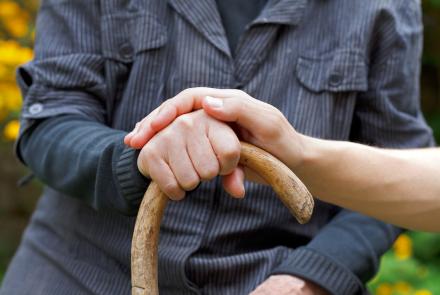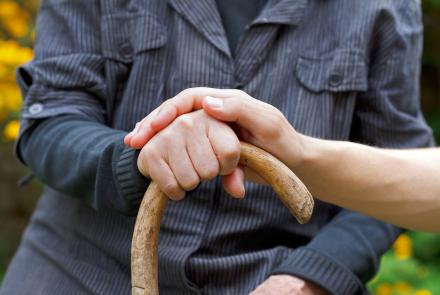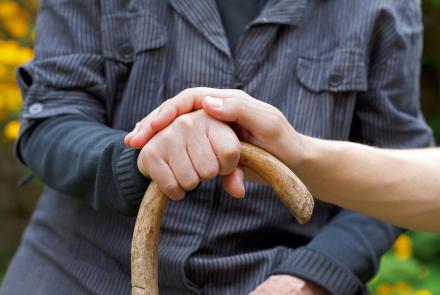
The most effective way to manage difficult behaviours in dementia and keep stress at bay for family, friends and caregivers is acceptance, patience and calmness, recommends Porrselvi A.P. a cognitive and psychosocial interventions specialist.
Many people with dementia undergo changes in behaviour during the course of the disease. These changes are unexpected, awkward, difficult to understand and are termed problem or deviant behaviour.
These sudden behavioural changes can be challenging and demanding for the caregiver, and can cause stress and embarrassment for family and friends. In such situations, the caregiver gradually starts giving up either on the person with dementia or starts withdrawing from all social interactions and shutting themselves up with their loved ones within the confines of their homes. This leads to depression and poor health status in both the person with dementia and the caregiver.
Some of the commonly seen problem behaviours of dementia are:
- Agitation and Restlessness-being fidgety, pacing or walking more up and down, checking and rechecking locks and bolts
- Aggressive behaviour- verbal obscenities, shouting, screaming and physical aggression
- Hiding or hoarding things
- Sundowning- a term used to refer to the increased confusion, disorientation and agitation in the evenings; sometimes these behaviours maybe exhibited more in specific times of the year like winter or summer
- Wandering
- Repetition and stereotypical behaviours that they repeat over and over again
- Changes in appetite and food preferences
- Sleep disturbances
- Being clingy and trailing the caregiver everywhere including the toilets
- Disregard for hygiene
- Losing their inhibitions- sexually inappropriate behaviour, urinating or removing their clothes in public, behaving inappropriately in situations, with people and in public, over familiarity with strangers and acquaintances etc.
Why do they behave the way they do?
The human brain is an amazing organ that controls everything you do and say. In dementia and in acquired brain injury, this central governing organ has parts of it missing, degenerating or losing its function. So the control over behaviour that we have learnt from childhood slowly loosens and people start behaving by instincts or by whatever the faulty connections in the brain tells them to do.
Often, it is mistakenly believed that the concerned person is behaving bad on purpose, is being selfish and inconsiderate. We have to understand and remember that these problem behaviours are not done with any malicious intent.
When caring for a person whose personality has changed and is out of character, it is important to remember that this behaviour is most often a manner of communication. The person is unable to communicate in socially learnt ways and so behaves in whichever way the injured brain tells him or her to. These behaviours can be due to :
- Biological causes- pain, hunger, thirst, feeling hot and sweaty, feeling cold, constipation, need to use the restroom (they might forget they are wearing a diaper or a catheter)etc.
- Psychological causes- Separation anxiety, feeling threatened, apprehension, fear, frustration, feeling helpless and out of control, etc.
- Social causes-Feeling bored, lack of stimulation, no interesting/challenging things to do, etc.
The best and most important thing to do in these situations is to look beyond these behaviours and think about what might be causing it.
The way to do it is to put yourself in their shoes and look at the world from their perspective. This is where a caregiver education session with a qualified professional who understands dementia can help understand the disease and how their brain works now.
Take the behaviour not as an embarrassment but like you would take any other symptom like pain in the arm or leg that needs to be addressed.
The first most important thing to do is to rule out any biological cause. If you identify any physical cause, consult your physician or neurologist immediately. Always let your healthcare consultant know of any new symptom including these behaviours. Your physician or neurologist may review if these behaviours are any possible side effects to the medications that the person with dementia is on and will let you know if the medication or the dosage can be altered to address the issue at hand.
If you identify a psychological cause, a calm voice and a peaceful environment with minimal stimulation will help the person regulate their behaviour. If you get agitated, the patient may get further frustrated and agitated. Scolding the person may not work as often the person with dementia will be unable to understand what is right from wrong, what hurts someone else. They will be unable to understand the emotions of their caregiver or read it. We encourage the primary caregiver or one of the family members to remain calm and in control of the situation and thus become the person the patient will look to for reassurance and strength in stressful situations or when they feel threatened or helpless.
Keeping the person engaged in meaningful activities that sufficiently challenge them, but are not so challenging that they get frustrated, is important. A thorough cognitive assessment by a qualified professional will help in identifying the strengths and weaknesses of the person and help you decide on what maybe the meaningful yet challenging activities for your loved one.
Mr S, a 77-year-old patient whose advanced stage dementia was keeping his caregiver socially secluded. This old couple was helped by just introducing a few changes in the daily schedule, few environmental modifications and a few changes that helped him socially and cognitively engage better. This was a person who used to urinate anywhere he wanted to in the house, pinched and tripped any children or young adults in his vicinity and make socially inappropriate physical contact with people he liked even if they were mere acquaintances or strangers. A thorough cognitive assessment was done and then the caregiver attended an education session during which how to communicate with the patient keeping in mind his weaknesses was also demonstrated. The caregiver was also shown how he can be kept occupied close to an hour and a half at a stretch without indulging in disruptive behaviours during the caregiver education session. When these recommendations were followed by the caregiver, after about two weeks, Mr. S started following the routine and the caregiver stress was significantly reduced and most importantly. Mrs. S was no longer socially secluded.
Sleep disturbances are often caused due to the decreased physical activity and reduced exposure to light. So for patients with sleep disturbances, it is recommended that they follow good sleep hygiene practices, avoid prolonged daytime naps, increase in structured physical and cognitive activity and proper environmental modifications that address the needs of the patient (eg. light in the bathroom, a night lamp, comfortable room temperature, etc). Drug interactions, pain, frequent urination at night are other factors that may cause sleep disturbances. These are symptoms you need to discuss with your healthcare provider. Anxiety and Depression if present need to be addressed by a qualified professional.
Some other recommendations for managing difficult behaviours are:
- Maintaining meaningful social relationships with people they remember
- Reducing TV time and increasing meaningful activity
- Encouraging the patient to do their routine activities by themselves as long as they are safe (even if it takes a long time for them to complete the tasks or requires a lot of prompts)
- Maintaining familiarity in the environment (even if you need to move, keep their usual curtains, bedspreads, personal belonging, photographs etc.)
- Structured daily routine
- Environmental modifications to ensure safety- locking closets and rooms, keeping keys, important documents and potentially harmful things like knives, repellents in locked drawers or cupboards
- Spending quality time with the patient doing some meaningful activity (Watching TV together is not a meaningful activity but listening to the same story everyday looking at the same old photograph from their younger days is a very good activity to do with the patient)
- Calming music which is familiar may work for some patients
- Exercise such as daily walks or exercises that can done while seated for patients with balance problems or knee pain
- In cases of sundowning, plan a structured quiet evening with minimal excitement and stick to the routine and familiarity
Changes in behaviour are very common in dementia and cause a lot of stress on the family, friends and even neighbours. But by looking at the meaning behind the behaviour and considering what may be causing it, it is possible to find ways to support the person with dementia as well as their caregivers. Acceptance, patience and staying calm are the most effective ways to manage difficult behaviours as well as to keep caregiver stress at bay. There are many more behavioural interventions in addition to those listed here; treatments and specialty care providers who can help you significantly improve the quality of life for you as well as the person with dementia. So don’t be afraid or feel guilty to reach out.
Related reading:
10 Tips for communicating with a person with dementia
Dementia Caregiving Challenges and Solutions
















